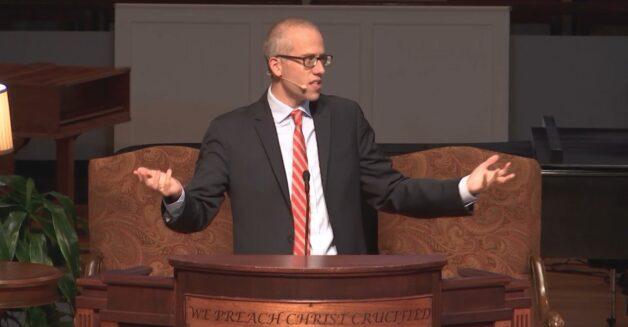
One of the benefits of getting older is that you become even less impressed with recycled bad arguments.
Fifteen years ago when people were still talking about the Emergent Church, I participated in a panel discussion about the pros and cons of the movement. After a riveting panel in front of 50 people, in a cavernous hall that had room for more than 500, a visibly upset man accosted me, frustrated with how I used Scripture to critique the Emergent Church.
He didn’t try to argue with any particular comment I made, including my references to the Bible. Instead, he argued with me that everything I said was only my interpretation of the Bible. I tried to show him that Jesus taught as if there was a discernible meaning in Scripture that could be known, agreed upon, and meaningfully communicated. He replied that this was only my interpretation. I tried to belabor the point that the men in the Bible didn’t speak or write as if they only had an interpretation of the Bible. He said this line of reasoning was also just my interpretation.
Needless to say, we both walked away from our exchange more frustrated than enlightened.
The debate about interpretation is an old one. During the Reformation, Protestants and Catholics weren’t (then) divided over the total trustworthiness of Scripture. They were divided over the clarity and authority of Scripture. The doctrine of perspicuity—which, for a word meaning “clarity” isn’t all that clear—is sometimes maligned as a magical assertion that everything in the Bible is easy to understand. But the doctrine is more sophisticated than that.
The Westminster Confession of Faith gives a classic definition when it admits that “[a]ll things in Scripture are not alike plain in themselves, nor alike clear unto all,” yet the things that are necessary for salvation “are so clearly propounded, and opened in some place of Scripture” that even the unlearned—“in a due use of the ordinary means”—can gain a sufficient understanding of them (WCF 1.7).
In our day, that debate is not a technical theological controversy about popes, councils, and the magisterium. But the question is just as important because an implicit denial of the clarity of Scripture goes hand in hand with the diminishment of the study of Scripture.
When someone says “That’s just your interpretation,” or when critics slander conservative Christians as believing not just in the infallibility of the Bible but in the infallibility of their interpretation of the Bible, the next step is almost never to strive for a supposedly better interpretation. The critics don’t mean to dive deeper into the text so as to determine what the Bible teaches. The charge of “just your interpretation” has the opposite effect; it short-circuits the interpretative process altogether.
This is a rhetorical strategy that marginalizes traditional and orthodox doctrine, not by proving that the doctrine is wrong but by making the rather mundane observation (masquerading as profundity) that some people don’t agree with the doctrine. Why go to the hard exegetical, historical, and theological work of debating women’s ordination or gay (so-called) marriage if you can sidestep the debate by labeling the church’s long-held position as “just your interpretation”?
Besides being intellectually lazy, the charge of “just your interpretation” is also self-defeating, because, of course, the critics believe they have arrived at a very good interpretation of how to understand conservative Christians. More than that, at some point, everyone thinks the Bible is clear about some things. I’ve read theologians argue strenuously against the clarity of Scripture, only for those same theologians to later assert that obviously the Bible is clear about the message of the kingdom, or about God’s preference for the poor, or about God’s heart of love for the outcast. Perspicuity for me, not for thee?
The reality is that “interpretations” are what we have in every area of intellectual inquiry. The problem of pervasive interpretation pluralism is not an evangelical problem. It is a human problem. Do we really think historians, economists, sociologists, and scientists don’t disagree on how to interpret matters in their field? And do we think they aren’t confident that their conclusions are much more sure than mere “interpretations”? If we are going to give up on reading texts and reaching firm conclusions, we won’t just marginalize the Bible; we will render the entire exercise of human reason fruitless and irrelevant.
The Bible has always been subject to different interpretations. Peter acknowledged that some things Paul wrote were “hard to understand” and that “the ignorant and unstable twist them to their own destruction, as they do the other Scriptures” (2 Peter 3:16). The task of preachers, theologians, and ordinary Christians “in due use of the ordinary means” has been to determine the true meaning of the text.
As Augustine put it, “What difficulty is it for me when these words can be interpreted in various ways, provided only that the interpretations are true?” The prophets and the apostles, the early Fathers and the Reformers all assumed that the Bible could be correctly understood and applied. We dare to affirm the same.
One of the great challenges for biblical inerrantists in our day is not only to show that what we believe is right, but to defend the very right to be right.



